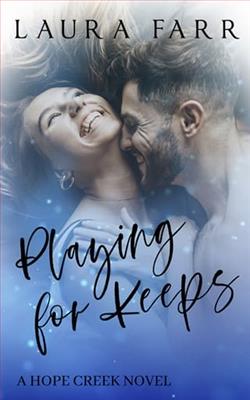Page 29 of A Prophecy for Two
Chapter 7: Hope
Going home was painful. Going home hurt.
Palace walls and stray books and ancient tapestries of heroes bled and screamed and whispered Tirian’s name. Every breath became torture. Every staircase or chair that did not contain a laughing grey-eyed fairy carved another hole in the universe.
Ollie slept at first, fitfully and unevenly, recuperating; the cut on his leg throbbed and burned, uneasy. He awakened with a fever and asked where Tirian was; someone made a small anguished sound beside his bed, and his brother told him to rest, to sleep, to not worry. Ollie did, because that was all he could manage.
He woke wobbly but clearheaded a day later, and knew that Tir was gone.
He couldn’t believe it, but he knew it the way he knew about breathing: it was there, it happened, he couldn’t stop it.
He did not want to have to know it. He had to.
He did have one other concern, a distraction. Magic. An irony.
One side effect of having half-drowned in the Seeing Pool, he began to discover, involved a kind of extra-sensitivity in every sense. Scents became stronger, clearer: he could pick up wood smoke or perfume from miles away. Touch bespelled him; he caught himself running fingers over velvet blankets, linen cloths, dry palace walls, crisp hay. Lights sometimes dazzled and blinded; at first he thought he might still be ill, some holdout from the fever or the dragon or sitting in a ravine with an untended cut, but no, the castle physician told him.
“Magic, that’d be. You drank magic, Oliver.”
“Not on purpose!”
“Well,” Fadi said, “we’ll see how this goes, then.” Fadil Ahmadi had taken over as the palace’s primary medical resource nearly five years before, replacing the elderly—and more traditional—doctor who’d been around long enough to deliver multiple royal children. Not quite coincidentally, his grandfather oversaw the great hospital and training center down in the sprawling desert kingdom of Al-Masi, the same place Ollie’s youngest sister was finishing her own studies; Fadi’s father, however, had had the restless feet of an explorer, had found himself in Bellemare’s southernmost port city of Heartwater, and rather to his own surprise had married a quick-witted innkeeper’s daughter and settled down. Fadi took after his grandfather in interests and physician’s training, his father in darkly handsome good looks, and his mother in that lovely coastal lilt.
Ollie would’ve been perfectly happy to see him end up with Lou if his youngest sister’d ever given any indication of interest in romance at all; as it was, they’d gotten to be friends. Fadi was more or less Ollie’s own age—which meant he was also more or less Tir’s age, but Tir would never get older, because Tir was—
He took a deep breath. Buried the wound. “What’ll happen?”
“I’ve really not a clue.” Fadi patted him on the shoulder. “Honestly, I shouldn’t think you’d need to worry. You’re perfectly fine physically, better than fine in fact, once that leg’s healed up. Off the charts as far as hearing, now. And you’d know magic better than I would; we’ve got our sandsprites and ifrits, but mostly down South they keep to themselves. Have you looked into any histories or local folklore dealing with this?”
“No…”
“Might even be handy, once you get used to it.”
“It gives me headaches.”
“Practice,” Fadi suggested, and sent him away with willowbark and peppermint tea.
Ollie tried. He didn’t have much control. Sight and sound flared up uninvited; he could hear a conversation halfway across a courtyard as if he were standing beside the men in question, but not necessarily when he wanted or chose to. He began sleeping with a pillow over his head.
Tirian, being intrinsically magic, would’ve been able to help him. Tir—
He cried more than he’d ever thought possible. His eyes hurt, wrung out with weeping. His heart hurt, empty.
He’d always had Tir. He’d always been able to run into a room, nine times out of ten the library, and find Tir. He couldn’t get used to rounding corners without his fairy-shadow a step behind him.
He banged on Tir’s door in the morning more than once before he remembered nobody’d grumble and throw a pillow at him. He turned to see what amused rainwater eyes might think of the off-key visiting bard and found only colorless space.
The third morning he tried to wake Tir up, he did remember, right before his knocking knuckles made contact with door-oak. He let his hand fall. Palm flat against wood.
“I’m sorry,” he whispered, “I’m sorry, I don’t know how to do this, I don’t know how to lose you,” and then he sank to the floor and rested his head against the door and pretended Tirian was on the other side alive, for a moment, only for a moment, and it wasn’t enough, and he had to get up and go eat breakfast so his family wouldn’t fret over him. More.
He couldn’t make himself grow used to grief and the way it ripped his bones to pieces and then did it all over again.
He couldn’t make himself understand what he’d lost. He knew, but if he tried to put words to it—
He knew how wrong he’d been. About that vision. About the person he’d been meant to save, to fall for.
Of course Tir had been a prince. Nothing in Oliver’s family tradition had ever specified that the prince he’d find had to be human.















